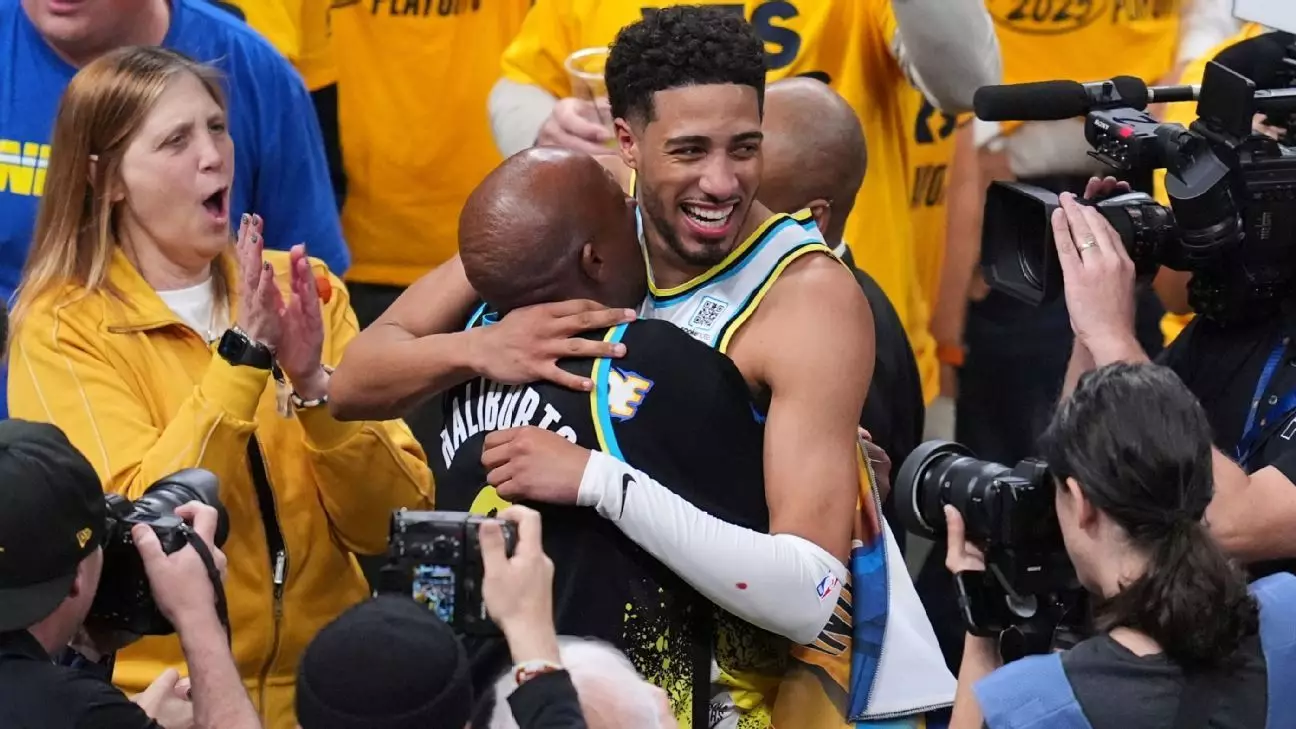In the world of professional sports, the dynamics of family and the pressures of competition often collide in dramatic fashion. A recent incident involving Tyrese Haliburton of the Indiana Pacers highlights how familial passion can sometimes overshadow the professionalism expected in high-stakes scenarios. Following a heated exchange between John Haliburton and Giannis Antetokounmpo after the Pacers secured a thrilling overtime win against the Milwaukee Bucks, the consequences of emotional support became all too clear.
The decision for John Haliburton to refrain from attending future games wasn’t merely a personal one; it was a directive from the Pacers’ front office aimed at preserving the integrity of the team and the sport. While the father’s actions post-game may have stemmed from sheer excitement, they ultimately reflected a disregard for the spirit of sportsmanship. This event begs the question: how should families manage their emotional investment in their loved ones’ careers without crossing into disrespect?
Emotional Responses in Competitive Sports
John Haliburton’s decision to confront Antetokounmpo, even momentarily, highlighted a crucial element of competitive sports—intense emotions. The high-octane environment of a playoff game can amplify feelings of joy, anger, or frustration to extremes. However, it is essential to recognize where the line should be drawn. In sports, respect between players is paramount, and when a parent’s actions disrupt that balance, it raises legitimate concerns about the influence of family on professional conduct.
Antetokounmpo’s sentiments echoed the necessity of humility in victory. His comments, wherein he emphasized the importance of respect, unveil a broader conversation about the unwritten codes of behavior among athletes. In a profession where every action can be scrutinized, what responsibility falls upon family members to adhere to these standards?
Parental Influence: A Double-Edged Sword
For athletes, parental support is often a cornerstone of their success. However, as seen in this situation, it can also be a double-edged sword. Tyrese Haliburton’s recognition of his father’s overzealousness illustrates an inherent conflict: the desire for familial support can clash with the need for professionalism. While families are essential for emotional backing, they must also possess the discernment to allow their loved ones to operate independently within their professional frameworks.
Tyrese’s response to his father’s actions didn’t just signify disappointment; it articulated a reality many athletes face. The relationship between a parent and an athlete involves navigating the complexities of emotional attachment and professional decorum. The balance embedded in this dynamic is often fragile, easily swayed by the heat of competition.
Moving Forward with Lessons Learned
Ultimately, the incident serves as a salutary reminder that while passion for the game is vital, respect for all involved is equally crucial. For the Pacers, as they gear up for their next playoff challenge against the Cleveland Cavaliers, maintaining a focus on professionalism over emotion will be key. Families, while supportive, often need to relinquish the reins during moments of high tension, allowing athletes the space to thrive in their environment without undue influence.
As the dust settles from this confrontation, it is clear that this episode may foster a deeper understanding of the boundaries that must exist between personal passion and professional respect. Tyrese Haliburton, not only as an athlete but as a son, has now learned invaluable lessons about the consequences of actions both on and off the court.


Napsat komentář